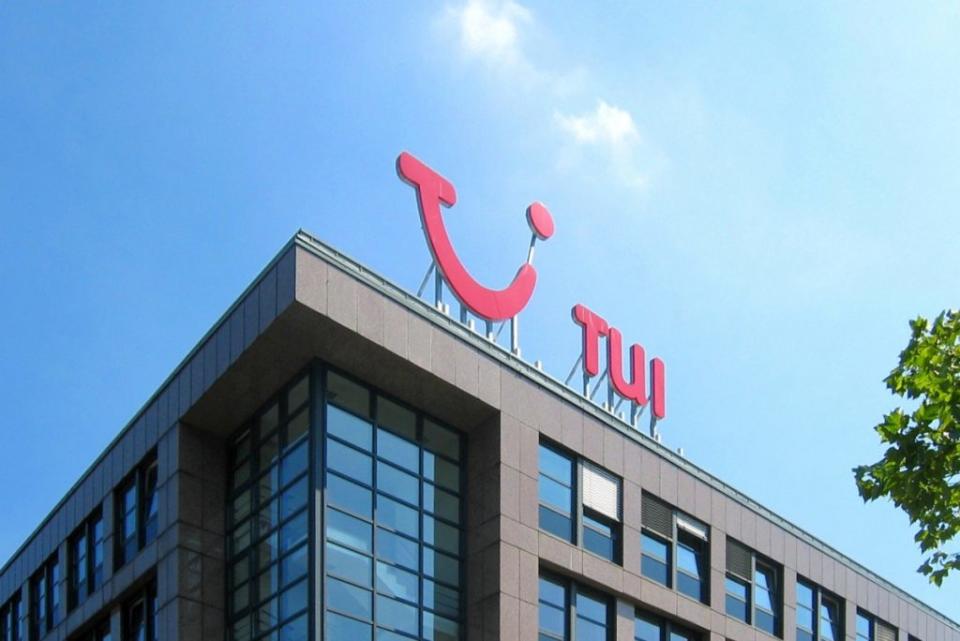TUI to Test Dynamic Pricing in the UK

TUI Group sees an opportunity to leapfrog from selling package holidays with static prices to helping travelers book individual trip components with dynamic pricing.
The Hanover-based travel colossus has not yet “materialized its strong positioning” to offer its customers a more flexible packaging of flights, accommodation, and experiences to create a connected trip booking, said Sebastian Ebel, chairman and CEO of TUI Group, during an earnings call on Wednesday.
Ebel said TUI had to move faster, noting that Booking Holdings was now also putting investment into next-gen AI to advance Booking.com’s connect trip strategy.
The CEO said the company needed to focus on strategic initiatives, including long-promised dynamic packaging, where trip components are bundled together. Trip pricing would ideally reflect supply and demand signals, and more customization and upselling would be possible.
Ebel was particularly worried about maintaining and growing market share, specifically in the UK, where TUI is said to have lost its leadership footing.
He said that UK inventory availability — and the attractive margins presented by flexible booking of flights, accommodation and experiences — meant TUI could significantly improve its performance without having to effect major pricing changes to the product in the UK.
TUI to Expand Dynamic Packaging
Ebel confirmed the expansion of its digital platform from its Nordic region to more markets including the UK.
“Dynamic packaging gives us a lot of benefit,” Ebel said. “It is also one of the reasons why we are able to plan to sell significantly more in the UK… due to access to variable stock we can dynamic package and that should lead, without starting any price activities, to move into a strong growth pattern.”
TUI’s performance in the UK during the latest quarter saw an improvement of 10 percent year-over-year and overall bookings surpassing 2019 levels. The gains benefited from 6 percent higher pricing over the last six weeks of the quarter ending March 31.
“The margin grid of dynamic package product is very attractive and it remains a must-do to gain profitable market share in the UK,” he said.
Direct Bookings to Grow
Added strategic pillars mentioned during the earnings call by Ebel all point towards a more flexible connected trip model.
Added development mentioned by Ebel also included an increased focus on value-added products through TUI’s direct booking flight marketplace. Instead of using New Distribution Capability (NDC) systems through Amadeus and Sabre, direct flight booking would improve its ancillaries’ growth, allowing customers to personalize their trips with airport and flight extras. That puts it at odds with some industry trends among travel agencies.
With the focus on growth in the UK, it is notable that the company had direct connectivity with most big European airlines, according to Ebel, but not British Airways.
TUI Optimistic About Summer
In the UK and beyond, TUI Group feels ready to handle a busy summer season without operational disruption after smoothly handling a high-demand Easter period.
Global inflationary measures are driving air tickets prices higher. TUI Group is banking on its customers being able to absorb these costs, by tailoring their vacation destination and premium-level choices accordingly, all the while driving the company’s ability to produce an improved operating result for the remainder of 2023.
Ebel further quantified current pricing inflation on TUI products during the earnings call, stating that it was at 50 to 60 percent of the inflation seen in Germany or the UK. He further pegged a 5 to 10 percent increase on a trip that might have cost $1,500 two years ago, for example.
But despite inflation, an additional 2.4 million guests booked travel through the group during the first three months of the year, the company said.
TUI saw $1.5 billion more in sales in the quarter. Ebel remained optimistic about the 13 percent increase in summer bookings compared to last year’s summer period. Overall, TUI’s bookings for the second quarter were still four percent off 2019, at 96 percent. Still, performance showed a seven percent improvement compared to the 11 percent deficit to full recovery seen in quarter one.
TUI’s Robust Quarter
Revenue in the quarter ending March 2023 at $3.5 billion (3.2 billion euros; previous year: 2.1 billion euros).
Underlying earnings before interest and taxes (EBIT) improved by $96 million to -$265 million (88 million euros to -242 million euros) in Q2 2023, which is typically a weaker quarter for the industry – excluding exceptional items of previous year: improvement +$198 million (+181 million euros).
Ebel said that as TUI’s revenue climbed by around one-and-a-half billion dollars year-on-year to $3.5 billion between January and March 2023,
TUI has now settled its Corona state aid debt in full, as confirmed by Chief financial officer Mathias Kiep during the earnings call, following a successful capital increase that took place post its financial reporting period but with adjustments now showing a reduction of its net debt from $4.6 billion to a pro forma net debt of $3.4 billion.
With that behind it, Ebel said the company is looking forward to a period of “more financial and entrepreneurial freedom.”
UPDATE: This article has been updated to include expansion of TUI dynamic pricing for all trip components, not just tours.
Get breaking travel news and exclusive hotel, airline, and tourism research and insights at Skift.com.
